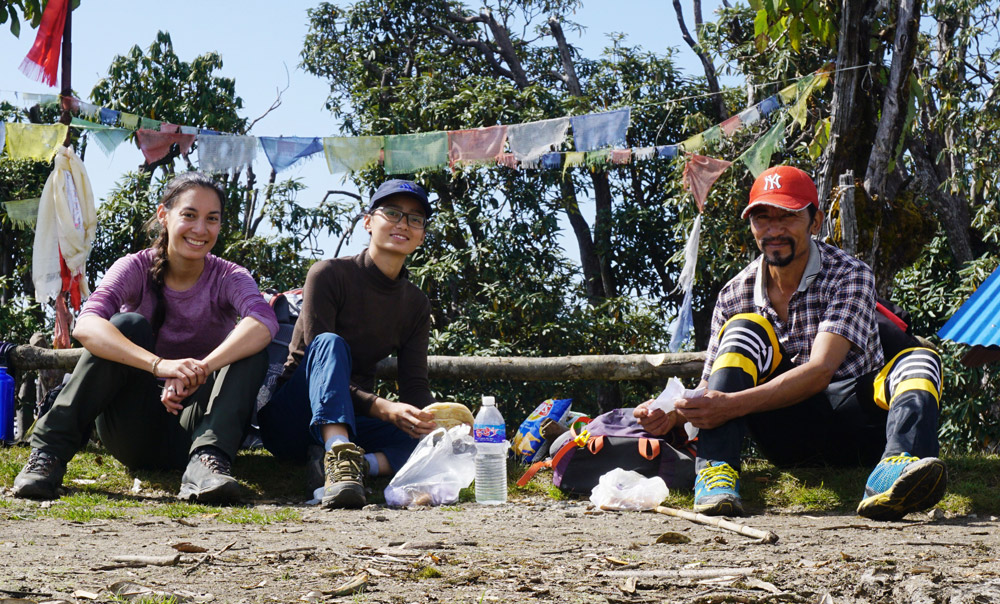#92: Fieldwork in rural Nepal: reflection on positionality, responsibility, and roles
In February of this year I set out on a travel to Nepal to conduct fieldwork for my Master's thesis. Besides the usual things my luggage contained: a rough draft of a research proposal, a few addresses, many question marks, much anticipation, but only a slight idea about what would actually await me.

My thesis revolves around so called homestays as a form of women's empowerment. Over the last few years this form of tourism has grown increasingly popular in Nepal. Especially in rural and remote areas, the concept of hosting both international and domestic guests in private households is supposed to offer them an authentic, local experience. My resarch focus lies on the effects of this development for women.
- How do they perceive this new income opportunity that takes place in their own domestic setting?
- Which are the direct implications for their everyday lives?
- What role do the men play?
- Does homestay tourism in this form help achieve sustainable empowerment for women in a patriarchal society?
For my qualitative study I visited ten villages in the Machhapuchhre region in the Himalayan foothills north of Pokhara, and interviewed a total of 16 women running a homestay business about their experiences.
Sarah Speck, co-supervisor of my thesis, had conducted fieldwork for her dissertation project in the same area. Not only was I able to profit greatly from her close ties to the region before setting out myself, it also enabled an interesting disucssion afterwards about our experiences working as women in a culturally foreign setting.
It was especially interesting to reflect on the cooperation with our female research assistants, who had accompanied us in the field to act as translators and guides. Both of us had come to perceive this relationship as surprisingly complex and multi-faceted in terms of roles, responsibility, and hierarchy.
Although the success of such projects is closely linked to the efforts of field assistants, they often remain mostly invisible in the final, written theses. This situation highlights privileges we possess being from the Global North. Furthermore, it should encourage us to delve deeper into questions about our own positionality when doing research. It seems especially relevant to reflect on both our and our assistants' roles, which are subjected to constant changes depending on the dynamic contexts we find ourselves in.
The newest issue of Feministische GeoRundmail (No. 83) aims to present exactly such specific accounts: Feminist research practice in geography: Snapshots, reflections, concepts. In our article (PDF, 210 KB) we talk about our experiences with fieldwork in rural Nepal in more detail.
Jana Schmid

